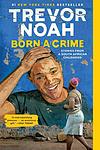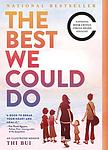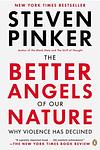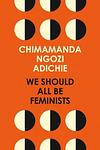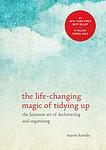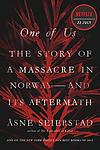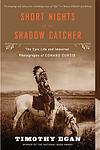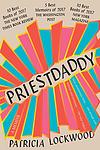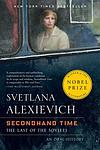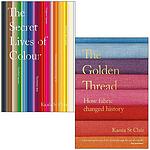The Greatest "Nonfiction" Books Since 2010
Click to learn how this list is calculated.
This list represents a comprehensive and trusted collection of the greatest books. Developed through a specialized algorithm, it brings together 300 'best of' book lists to form a definitive guide to the world's most acclaimed books. For those interested in how these books are chosen, additional details can be found on the rankings page.
Genres
Countries
Date Range
Reading Statistics
Click the button below to see how many of these books you've read!
Download
If you're interested in downloading this list as a CSV file for use in a spreadsheet application, you can easily do so by clicking the button below. Please note that to ensure a manageable file size and faster download, the CSV will include details for only the first 500 books.
Download-
26. Born A Crime by Trevor Noah
"Born A Crime" is a captivating memoir that chronicles the life of Trevor Noah, a South African comedian and television host. Set during the apartheid era, the book explores Noah's experiences as a mixed-race child growing up in a society where interracial relationships were illegal. With humor and insight, Noah recounts his struggles with identity, poverty, and racism, while also highlighting the resilience and strength of his mother who played a pivotal role in his life. This thought-provoking memoir offers a compelling and personal perspective on race, family, and the power of laughter in the face of adversity.
-
27. The Hare with Amber Eyes: A Family's Century of Art and Loss by Edmund de Waal
This book is a family memoir that traces the journey of a collection of miniature Japanese sculptures, called netsuke, through generations of a wealthy Jewish family. The narrative delves into the family's rise to prominence in the late 19th and early 20th centuries, their survival during the Nazi regime, their post-war struggles, and their eventual decline. The author uses the netsuke as a lens to explore the themes of art, loss, and family legacy.
-
28. Dark Money: The Hidden History Of The Billionaires Behind The Rise Of The Radical Righ by Jane Mayer
"Dark Money" by Jane Mayer is an investigative book that delves into the secretive world of political funding by wealthy individuals and corporations. Mayer exposes the hidden history of the billionaires behind the rise of the radical right, including the Koch brothers and their network of donors. She reveals how these donors have used their enormous wealth to shape American politics and policy, pushing their own interests and agendas while undermining democracy. Mayer's book is a sobering reminder of the dangers of unchecked political influence by the ultra-wealthy.
-
29. The Best We Could Do: An Illustrated Memoir by Thi Bui
This illustrated memoir captures the story of a Vietnamese family who fled to America after the fall of South Vietnam in the 1970s. The narrative traces their journey and struggles as refugees, while also delving into the family's complex history and relationships. The author uses her own experiences as a new mother to explore themes of parenthood, identity, and the enduring effects of displacement and trauma.
-
30. Midnight In Chernobyl by Adam Higginbotham
"Midnight In Chernobyl" is a non-fiction book that tells the story of the 1986 Chernobyl nuclear disaster. The book provides a detailed account of the events leading up to the explosion, the immediate aftermath, and the long-term effects of the disaster. It also explores the political and social context of Soviet Ukraine at the time, and the impact that the disaster had on the country and the world. The book draws on interviews with survivors, officials, and experts, as well as archival documents and scientific research, to provide a comprehensive and compelling narrative of one of the worst nuclear accidents in history.
-
31. Educated by Tara Westover
In this memoir, a young woman recounts her journey from a sheltered and abusive childhood in a strict and isolated Idaho family to her pursuit of knowledge and education. Despite facing numerous obstacles, including her family's distrust of formal education, Tara Westover manages to escape her oppressive upbringing and eventually earns a PhD from Cambridge University. Through her compelling and thought-provoking narrative, she explores themes of identity, family, and the transformative power of education.
-
32. Factfulness by Hans Rosling
The book challenges common misconceptions about the state of the world, using a wealth of statistical data to argue that, contrary to popular belief, global living conditions are improving significantly. It introduces ten instincts that distort our perspective—from the fear instinct (which leads us to perceive the world as more frightening than it is) to the destiny instinct (which causes us to assume that the fates of populations are predetermined). The author, a renowned public health expert, encourages readers to adopt a "factful" mindset, which relies on data and evidence to create a more accurate understanding of the world, ultimately fostering a more positive and productive approach to global challenges.
-
33. The Yellow House by Sarah M. Broom
"The Yellow House" is a memoir that tells the story of a hundred years of the author's family and their relationship to home in a neglected area of one of America's most mythologized cities, New Orleans. The narrative follows the author's journey from growing up in the titular house in New Orleans East, a largely ignored part of the city, to her pursuit of education and a career as a journalist, and her eventual return to New Orleans after Hurricane Katrina. The book explores themes of race, poverty, and inequity in America, while also being a deeply personal exploration of family, identity, and place.
-
34. The Better Angels Of Our Nature by Steven Pinker
This book presents a comprehensive analysis of violence throughout human history, arguing that, contrary to popular belief, we are living in the most peaceful era ever. The author uses a wealth of data to demonstrate how the rates of violence, from homicide to war, have decreased over centuries due to various social, cultural, and political developments. By examining the forces he believes have led to this decline, such as the spread of government, trade, and the influence of enlightenment thinking, the book offers an optimistic view of humanity's ability to reduce violence through reason and empathy, suggesting that our better angels are indeed winning the battle against our inner demons.
-
35. Atomic Habits by James Clear
This book explores the power of small habits and incremental changes in order to achieve significant personal and professional growth. The author delves into the science behind habit formation and provides practical strategies to break bad habits and build good ones. Through insightful anecdotes and actionable advice, "Atomic Habits" offers a roadmap for individuals to transform their lives by harnessing the compounding effect of small habits.
-
36. We Should All Be Feminists by Chimamanda Ngozi Adichie
The book explores the importance of feminism in today's society and argues that gender equality is not just a women's issue, but a concern for everyone. Drawing from personal experiences and anecdotes, the author highlights the various ways in which gender inequality manifests itself and offers insightful perspectives on how we can work towards a more inclusive and equitable world for all.
-
37. The Life Changing Magic Of Tidying Up by Marie Kondo
"The Life Changing Magic of Tidying Up" is a practical guide that offers a fresh perspective on decluttering and organizing one's home. The author introduces the KonMari Method, a systematic approach to tidying that encourages individuals to keep only items that truly spark joy in their lives. Through insightful anecdotes and step-by-step instructions, the book provides valuable insights on how tidying can lead to a transformative and joyful lifestyle.
-
38. One Of Us: The Story Of Anders Breivik And The Massacre In Norway by Asne Seierstad
One of Us by Asne Seierstad is a detailed account of the 2011 terrorist attack in Oslo, Norway, carried out by Anders Breivik. The book explores Breivik's background, motives, and planning leading up to the attack, as well as the aftermath and impact on the survivors and families of the victims. Seierstad's thorough research and interviews with those affected provide a comprehensive and emotional portrayal of the tragedy, shedding light on the complexities of extremism and the devastating consequences of hate.
-
39. The Power Of Habit by Charles Duhigg
This book delves into the science of habit formation, illustrating how habits influence our lives and how they can be transformed to foster success. It explores the neurological patterns that govern habits, the impact of societal routines on individual behavior, and the ways in which understanding these patterns can help us improve our health, increase productivity, and change our businesses and communities. By dissecting the components of the habit loop—cue, routine, and reward—the book provides insights into how habits work and offers practical advice on how to change them, drawing on a wealth of research and real-world examples.
-
40. Catherine The Great: Portrait Of A Woman by Robert K. Massie
This biography provides an in-depth look at the life of the longest-reigning female leader of Russia, tracing her journey from a minor German princess to the powerful Empress of Russia. It delves into her political achievements, her efforts to modernize Russia, and her numerous romantic liaisons, all set against the backdrop of the opulence and intrigue of the 18th-century Russian court. The book paints a vivid portrait of a complex woman who wielded her intelligence and charisma to navigate the treacherous waters of court politics, expand her empire, and become one of the most influential figures in European history.
-
41. Short Nights Of The Shadow Catcher: The Epic Life And Immortal Photographs Of Edward Curtis by Timothy Egan
The book chronicles the remarkable journey of an intrepid photographer who dedicated his life to documenting the lives and cultures of Native American tribes at the turn of the 20th century. With a passion that bordered on obsession, he traversed the American West, capturing thousands of images and recordings that aimed to preserve the fading heritage of indigenous peoples. His monumental project was both a groundbreaking anthropological achievement and a testament to the power of photography as a means of cultural preservation. Despite facing personal and financial hardships, his work culminated in an invaluable historical record that continues to influence our understanding of Native American history and culture.
-
42. H Is For Hawk by Helen MacDonald
"H Is For Hawk" is a memoir by Helen MacDonald about her experiences training a goshawk named Mabel after the sudden death of her father. MacDonald reflects on her grief and the challenges of training a wild bird while also delving into the history of falconry and the life of T.H. White, the author of "The Once and Future King" who also trained a goshawk. The book explores themes of loss, nature, and the complexities of human-animal relationships.
-
43. Capital in the Twenty-First Century by Thomas Piketty
This book provides a comprehensive analysis of the dynamics of capital accumulation and distribution over the last few centuries. The author argues that the rate of capital return in developed countries is persistently greater than the rate of economic growth, leading to high levels of wealth inequality. The book further suggests that the level of income inequality is not primarily a result of differences in individual labor income but rather the result of differences in capital ownership and the income derived from it. The author proposes a global tax on wealth to prevent soaring inequality.
-
44. Dreamland: The True Tale of America's Opiate Epidemic by Sam Quinones
This book provides an in-depth exploration of the opioid crisis in America, tracing its origins and examining its devastating impact. It delves into the lives of addicts, doctors, drug traffickers, and families affected by the epidemic, providing a comprehensive look at the complex factors that contributed to the crisis. The narrative also discusses the role of pharmaceutical companies and uncovers how the aggressive marketing of painkillers led to widespread addiction. Additionally, it sheds light on the black tar heroin trade, revealing how it has infiltrated small towns and suburban communities.
-
45. The Return by Hisham Matar
"The Return" is a poignant memoir detailing a man's search for his father, who disappeared in Libya's political prison system. The narrative offers a deeply personal exploration of loss, memory, and homecoming as the protagonist returns to his native country after years of living in exile. The book also provides a profound insight into Libya's turbulent history, its oppressive regime, and the devastating impact of politics on individual lives.
-
46. Tell Me How It Ends: An Essay in 40 Questions by Valeria Luiselli
This book is a powerful exploration of the critical issue of child immigration, focusing on the experiences of Central American children who arrive in the United States without their parents. The narrative is structured around 40 questions that the author, as a court interpreter, must ask the children to help determine their fate. The book provides a deeply personal and moving account of the human stories behind the ongoing debate over immigration and asylum laws.
-
47. Priestdaddy: A Memoir by Patricia Lockwood
This memoir follows the unique life of a woman who grew up in an unusual religious family. After a financial crisis forces her and her husband to move back in with her parents, she reflects on her upbringing in a household where her father, a Catholic priest, held an eccentric and often contradictory sway over the family. The book explores themes of faith, family dynamics, and the struggle to find one's identity amidst the chaos of an unconventional childhood.
-
48. How To Change Your Mind: What The New Science Of Psychedelics Teaches Us About Consciousness, Dying, Addiction, Depression, And Transcendence by Michael Pollan
In "How To Change Your Mind," Michael Pollan explores the history, science, and potential therapeutic uses of psychedelic drugs such as LSD and psilocybin. He interviews researchers, therapists, and individuals who have undergone psychedelic experiences, and shares his own personal experiences with these substances. Pollan argues that psychedelics have the potential to unlock new understandings of consciousness, spirituality, and mental health, and could offer new treatments for addiction, depression, and end-of-life anxiety. He also explores the cultural and political factors that led to the demonization and criminalization of these substances, and advocates for a reevaluation of their legal status in order to facilitate further research and exploration.
-
49. Secondhand Time: The Last of the Soviets by Svetlana Alexievich
"Secondhand Time: The Last of the Soviets" is a compilation of personal narratives from individuals who lived through the transformation of the Soviet Union to modern Russia. The book provides a vivid and emotional portrayal of the experiences of ordinary people during this period of significant societal and political change. The author uses these narratives to explore themes such as the impact of political ideology on individual lives, the nature of memory and history, and the enduring effects of trauma and loss.
-
50. The Secret Lives Of Colour by Kassia St. Clair
This book delves into the rich history and cultural significance of colors, exploring their origins, science, and social implications. It offers a vibrant journey through a rainbow of hues, from the rarest pigments to the most ubiquitous shades, revealing fascinating stories behind each color. The narrative uncovers how colors have been produced and used in art, fashion, politics, and warfare, shaping human civilization in profound ways. Through anecdotes and meticulous research, the book presents an eye-opening perspective on the palette of our world, illustrating how deeply colors influence our experiences and our very understanding of the world around us.
Reading Statistics
Click the button below to see how many of these books you've read!
Download
If you're interested in downloading this list as a CSV file for use in a spreadsheet application, you can easily do so by clicking the button below. Please note that to ensure a manageable file size and faster download, the CSV will include details for only the first 500 books.
Download